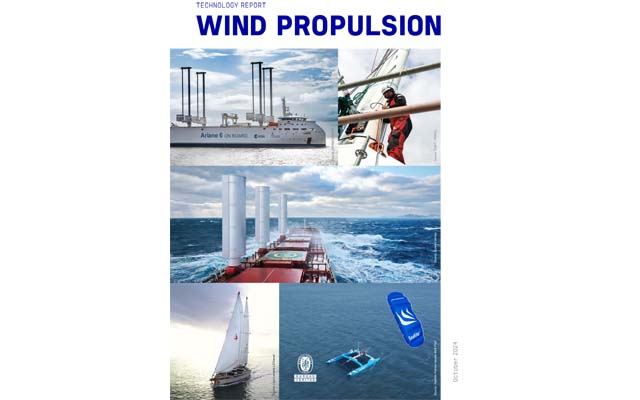Bureau Veritas Marine & Offshore (BV), has published its latest technology report, ‘Wind Propulsion Technology Report’, which details the technology systems that are available, their viability, as well as the various challenges that inhibit the adoption of wind propulsion systems at scale.
The report underscores the significant growth potential within the sector and the important role that wind propulsion technologies will play in the shipping industry’s decarbonisation transition. With safety measures representing a clear concern for widespread adoption of the technology, BV claims leadership in developing Rules for wind propulsion (NR 206 wind propulsion system) and notations (WIND PROPULSION-1 & WIND PROPULSION-2). Joint industry projects such as WISP3 are working to develop standardisation of performance predictions to provide assurance to shipowners and operators that wind propulsion systems will not impact vessel performance.
As owners and operators seek alternatives to reduce CO2 emissions and comply with current regulations, the report emphasises the need for international regulatory bodies to recognise and support wind propulsion as a credible means of reducing emissions.
However, the IMO has yet to define specific regulations or guidelines on the use of wind propulsion systems on ships. Installation and operation of wind propulsion systems remains subject to the same rules and regulations as engine-based propulsion systems, which means that there is a lack of clarity surrounding wind propulsion technologies contribution to reducing CO2 emissions on ships. This inconsistency is considered to represent a significant barrier to integrating wind propulsion technology at scale, as owners and operators are not provided with the clarity or assurance that investment in such systems will contribute to their compliance efforts.
Aude Leblanc, Technology Leader Sustainable Shipping, BV Marine & Offshore, said: “Current international regulations do not cater for propulsion systems that don’t burn fuels. The inclusion of wind propulsion in FuelEU Maritime is an important step in recognising wind propulsion technologies as a form of propulsion. However, without international regulation, there is little incentive for industry actors to invest in wind propulsion technology. Collaboration between industry players and regulatory bodies is crucial for the advancement of this technology.”
Pierre de Chateau Thierry, VP Commercial and CCO BV Marine & Offshore added: “We’re excited to launch this report and spark meaningful discussions that we hope will support the adoption of wind propulsion technologies. The maritime industry has made significant strides in adopting new technologies to reduce emissions, and wind propulsion holds great promise. At Bureau Veritas, we’re committed to facilitating this transition as industry continues its decarbonisation journey.”
The report outlines the growth potential of wind propulsion as a viable contributor to a ship’s energy balance, by highlighting wind propulsion’s role as a key component of a broader range of technologies aimed at advancing the shipping industry’s decarbonisation efforts.



